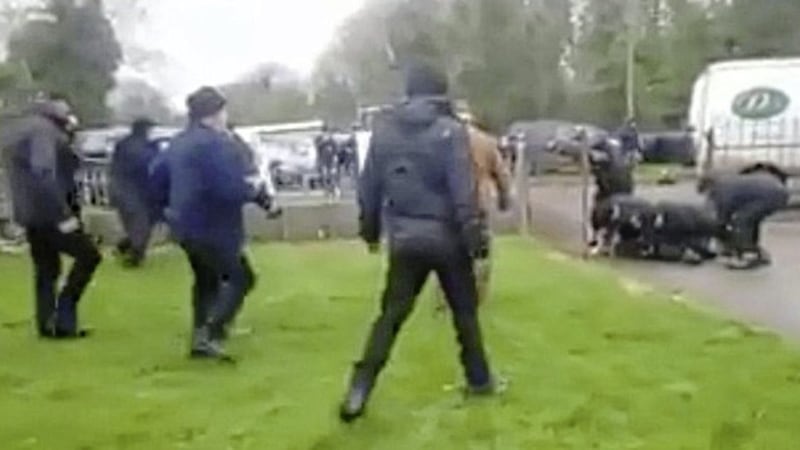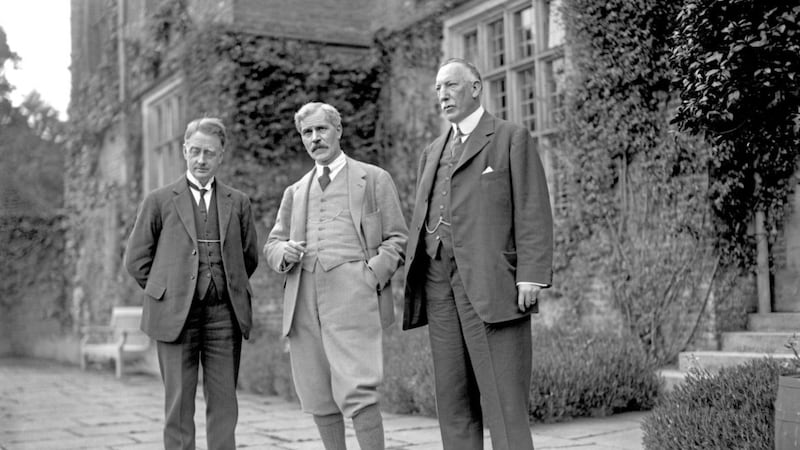Oscar Wilde once said: "The problem is the English can’t remember history, while the Irish can't forget it".
We live on an island steeped in history and folklore, an island that was occupied, that starved, that underwent forced hardships and injustices, that created martyrs and heroes who have streets and buildings named in their honour, that have songs sung in their memory.
The Ireland of the 16th,17th and 18th centuries was dominated by absentee landlords who were awarded seized land which they then rented out to the local population who lived and farmed there.
The landlords, often English or Scottish, used ‘agents’ to collect rent and evict the tenants, often violently and forcibly, who refused to pay or fell into arrears. This system became particularly detrimental to the Irish people during the Famine when, despite Ireland being a net exporter of food, millions starved, died of disease, or were forced to emigrate.
I was reminded this week by one Irish News caller to look at the story of Captain Charles Boycott, a more modern version of the land agent. When I say modern, I mean 19th century. Boycott was an English land agent whose ostracism by the Irish tenants gave the English language the verb "to boycott".
A former British army soldier, after retiring he worked as a land agent for Lord Erne.
As a result of evictions and harsh treatment of tenants he was ostracised by the community who refused to harvest crops with the local shop and services refusing his business. In response Orangemen from Co Cavan and Co Monaghan travelled to Lord Erne's estate to harvest the crops, while a regiment of the British army were deployed to protect the harvesters.
It’s all very historic, very emotive, the kind of past event that inspires songs and poems.
And so, you wonder when KBC bank hired bailiffs from Northern Ireland to forcibly remove three siblings from their farm in Co Roscommon two weeks before Christmas, were they aware of the optics and historic connotations of such actions?
Evictions in the south are unfortunately common place, the financial crash caused by over lending money, linked to inflated and unsustainable property prices, left thousands in negative equity and unable to pay back their loans.
Most repossession orders take place by prior arrangement, home owners often beaten down by years of battling with banks or mortgage companies through a complex court system, leave without the need of hired heavies to evict them.
The southern media have reported that KBC bank has been trying to get its debt repaid by farmer Anthony McGann as far back as 2009.
He’s not alone, there are hundreds like him, and of course some will argue thousands of others manage to pay their debts.
What does seem unusual and harsh in this case was the manner in which the eviction was carried out, two men are seen being dragged from the property at Strokestown, one bleeding from facial wounds.
The men hired to do the eviction, large and dressed all in black, are operating while gardaí look on.
Social media means events that once took place in secrecy are now instantly beamed to an audience of thousands, and in this case hundreds of thousands.
One of the security men is heard saying in a Northern Irish accent, on a video posted on Facebook, that he isn’t Irish but British.
I wonder had he kept silent would the reaction - a tsunami of outrage with posts about ‘foreign invaders’ removing Irish men and women from their land - have been so strong?
The online outrage no doubt played into the next chapter of this sorry saga when crowds of men launched a dawn raid on the property attacking the security men and setting fire to their vehicles, hospitalising two of them and injuring a guard dog that later had to be put down.
The ongoing political battle raging in the Dáil around the behaviour of banks and hired security men, with questions over licences to operate in the Republic, will I hope lead to more regulation of an industry that profits from misfortune.
The attack on the farm by vigilantes was hailed as victory for the little man, a battle over big business.
In reality it doesn’t solve the McGanns' problems at all, their debt still exists.
What it might do is shake the banks into realising that taking people’s money is a responsibility that works both ways and using paid heavies to put people out of their homes in the mouth of Christmas will not do the reputation of their company or profession any favours.
A Merry Christmas to you and yours.








